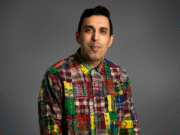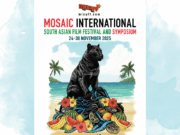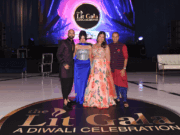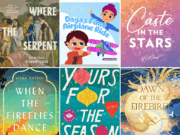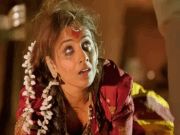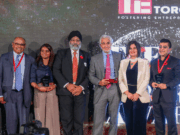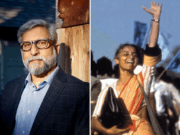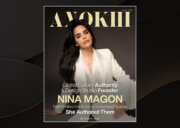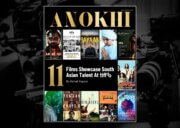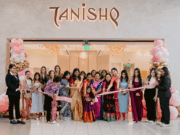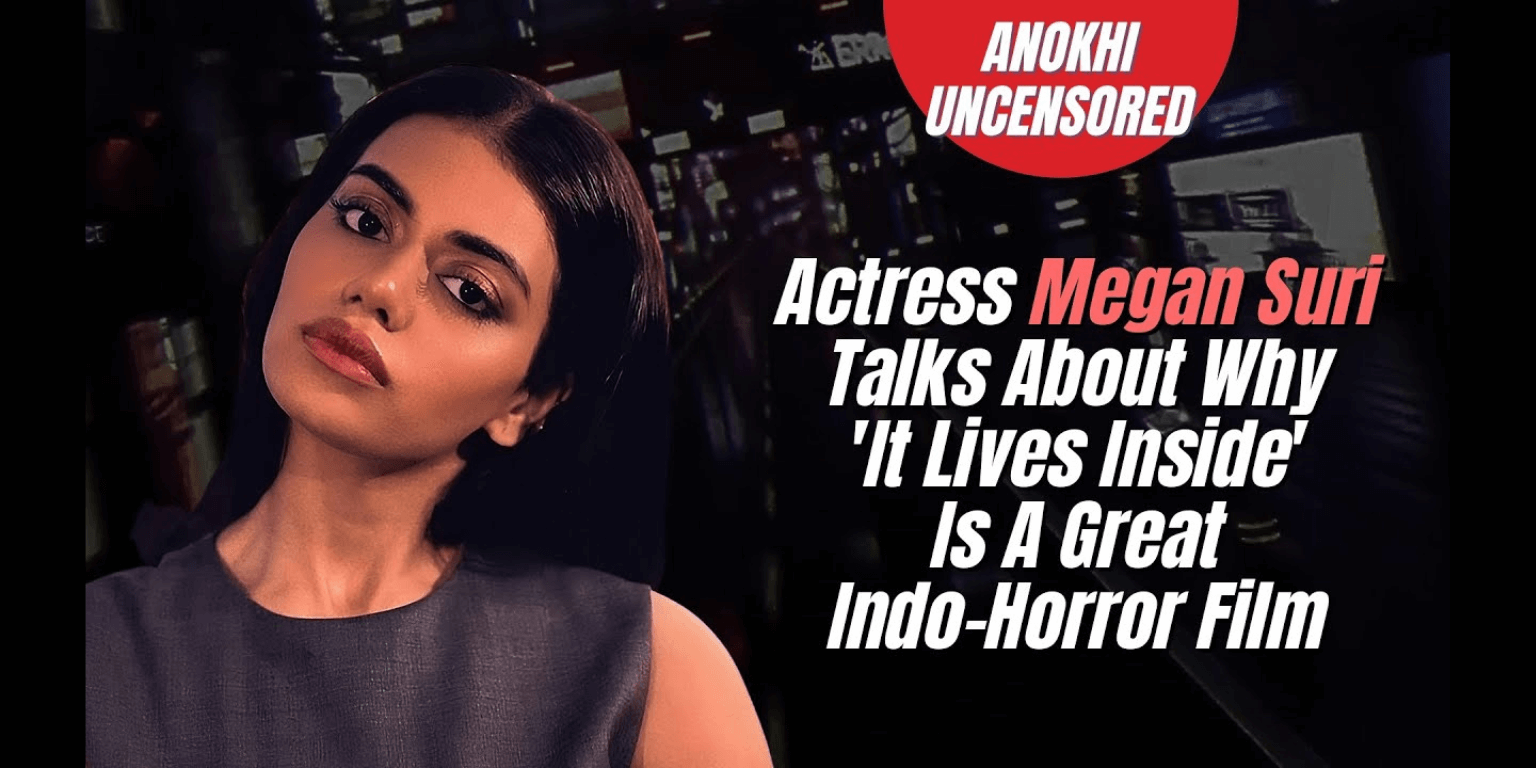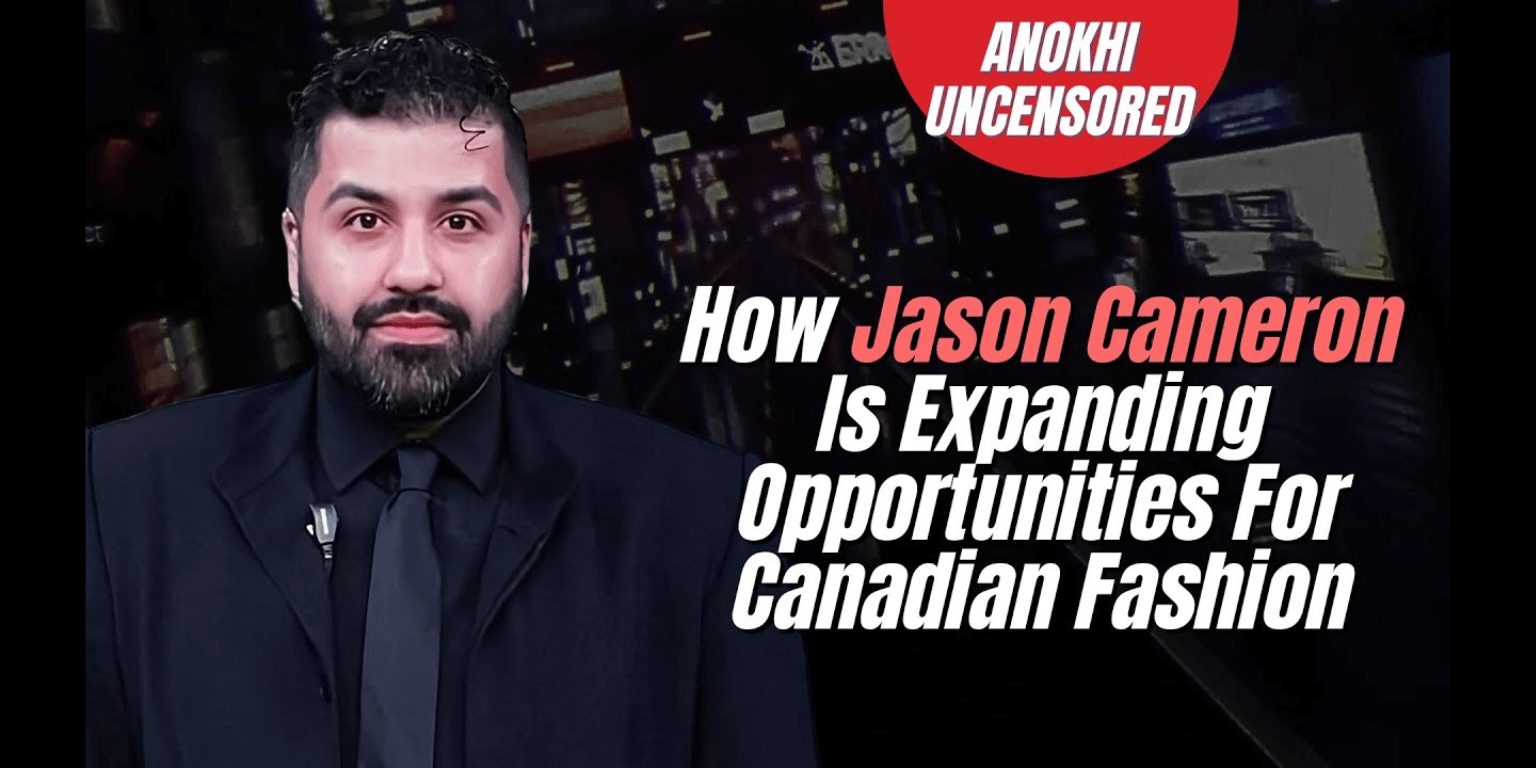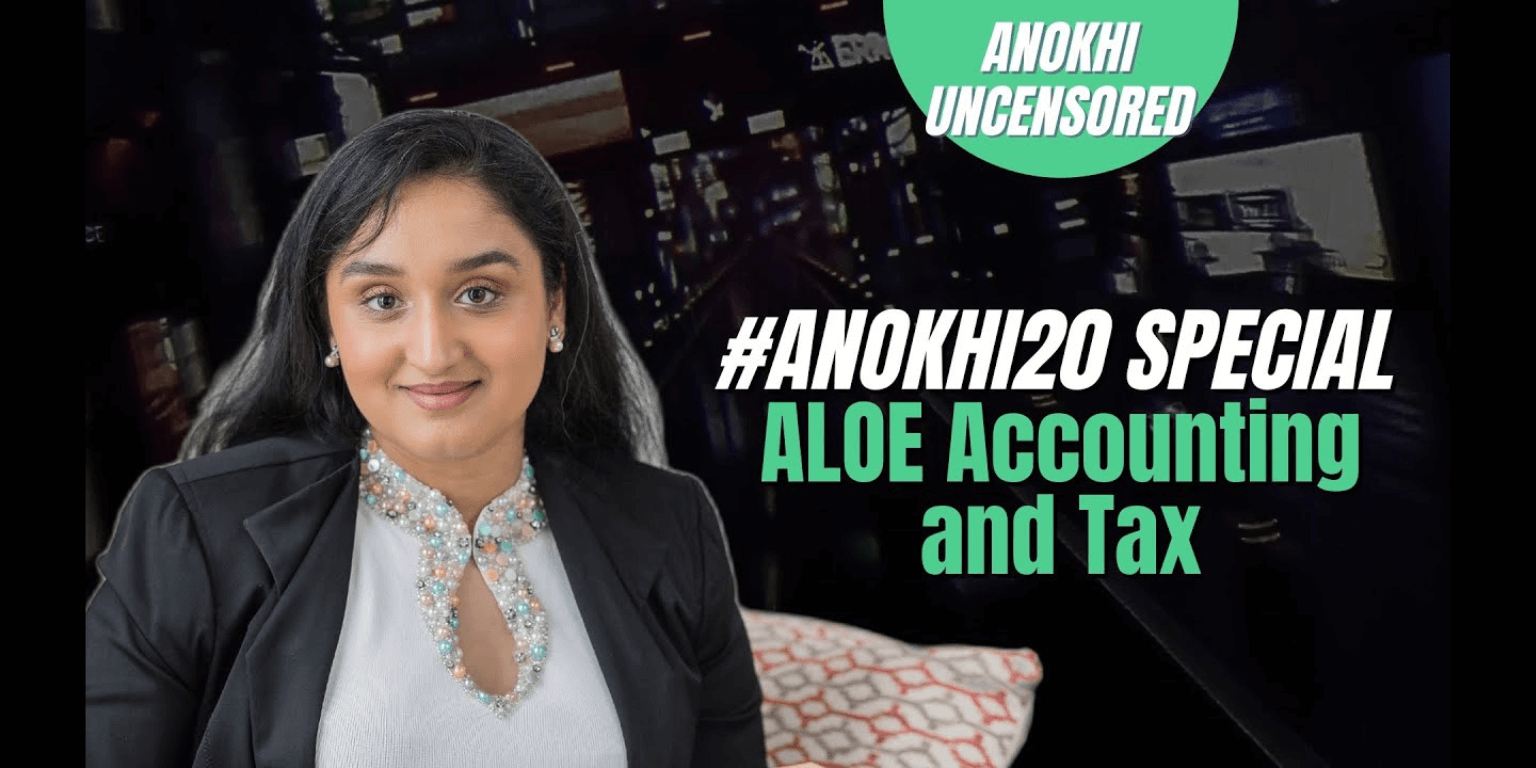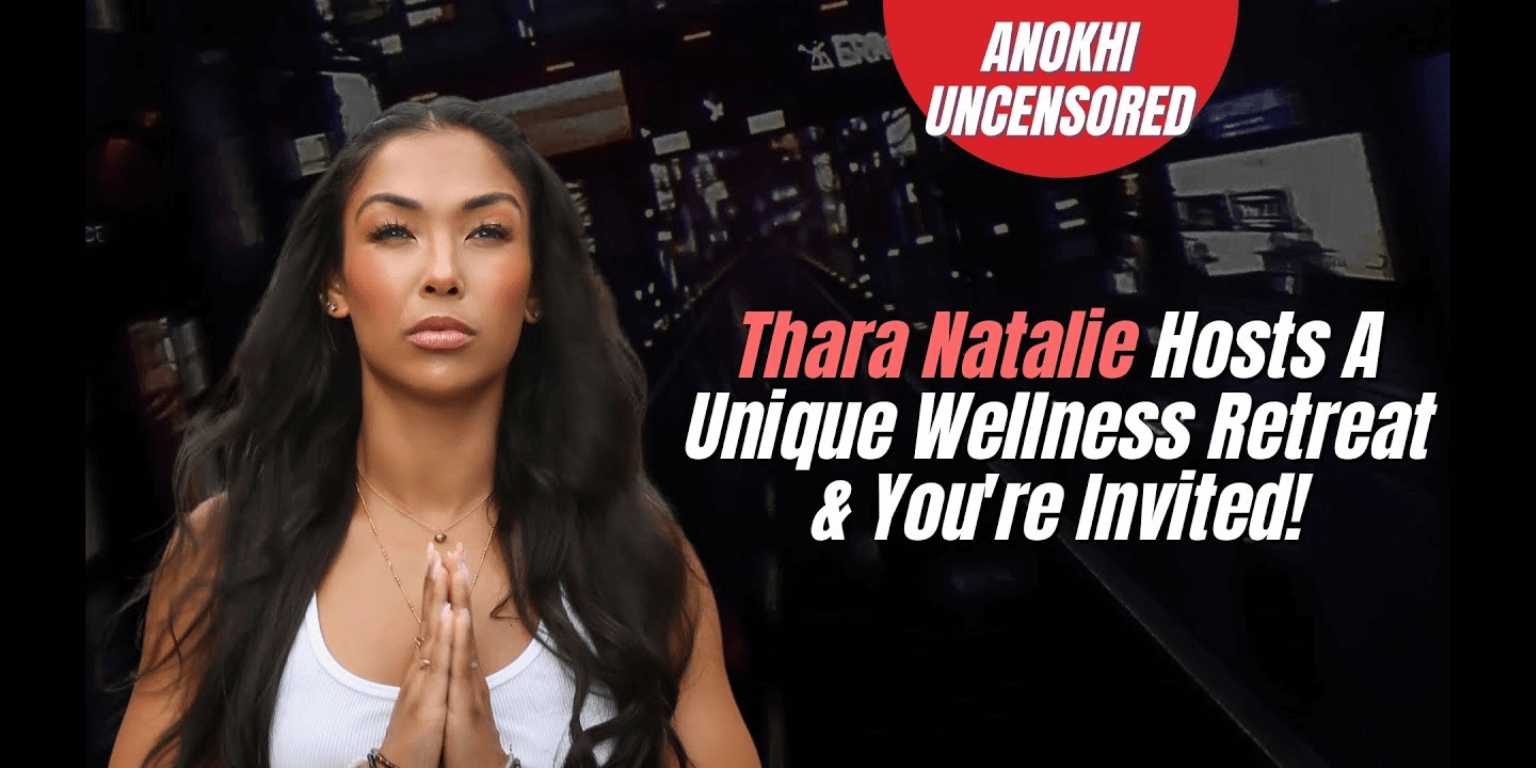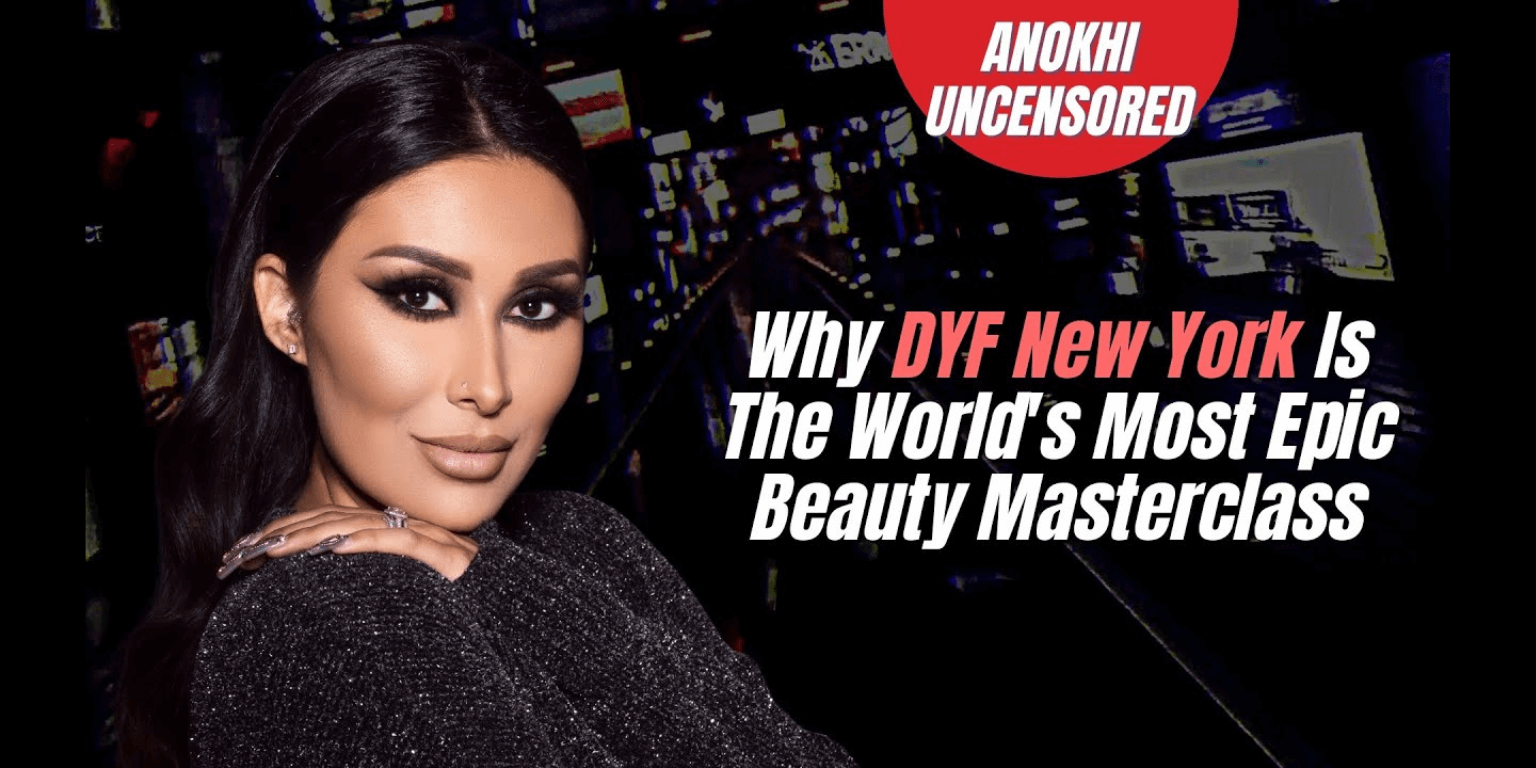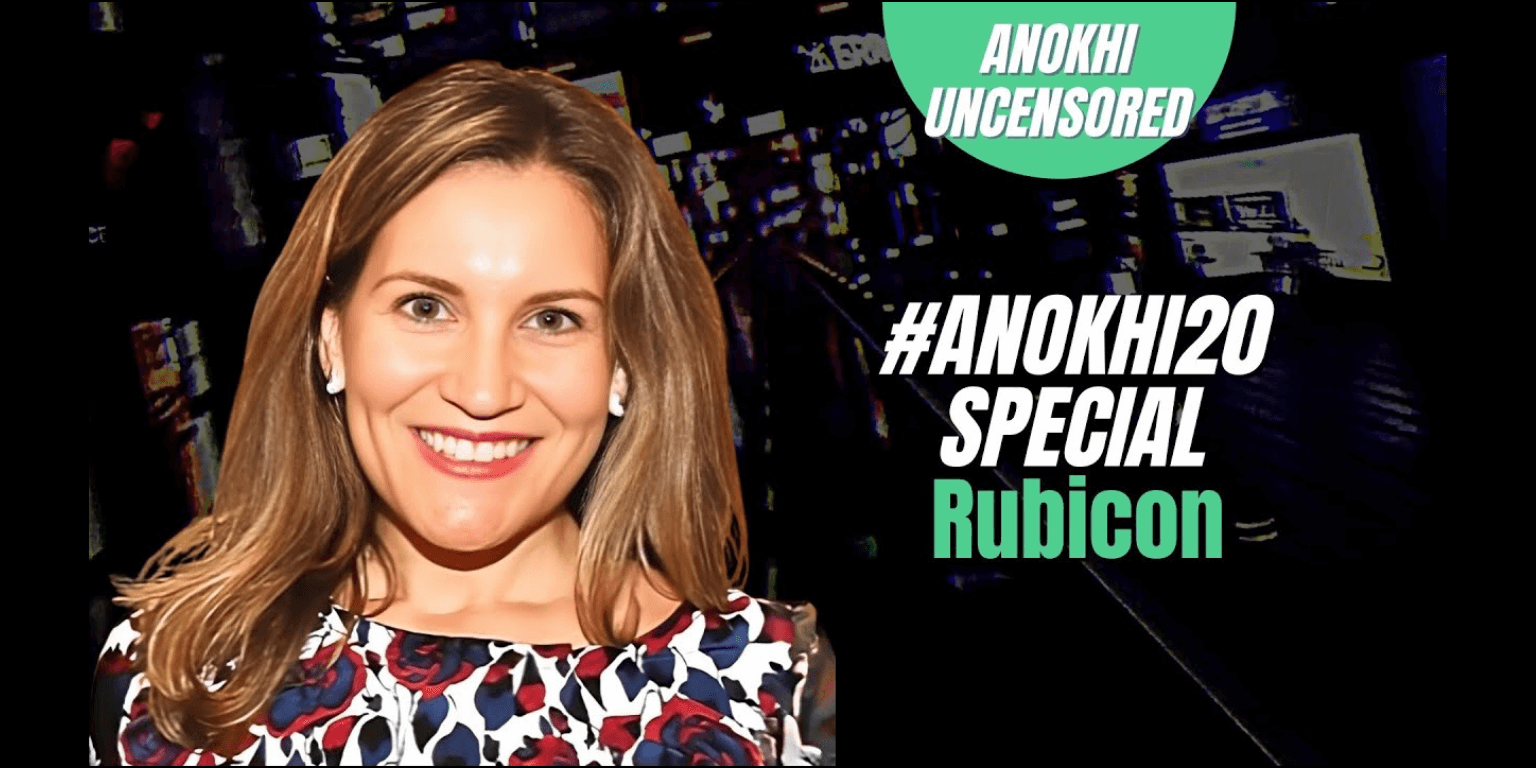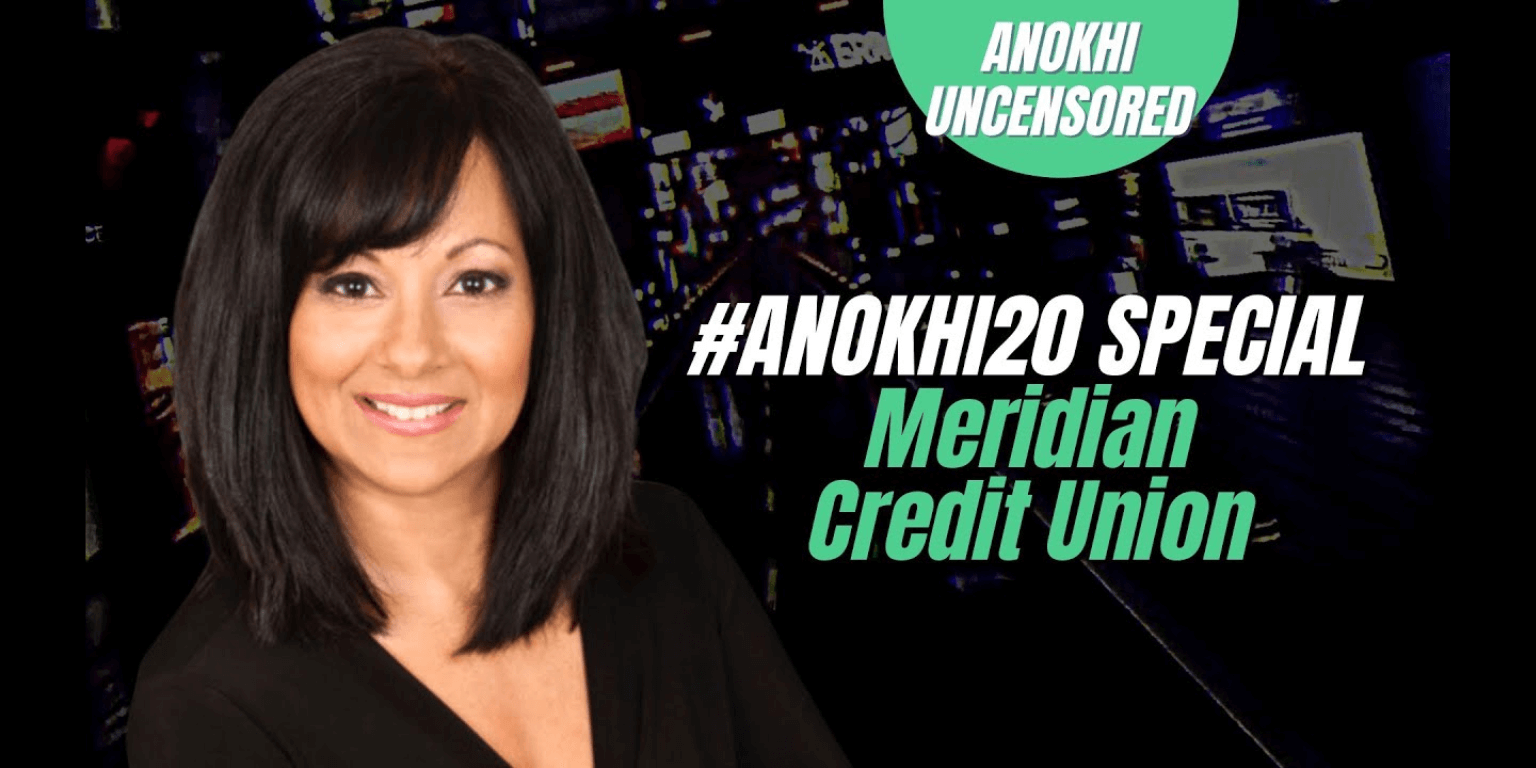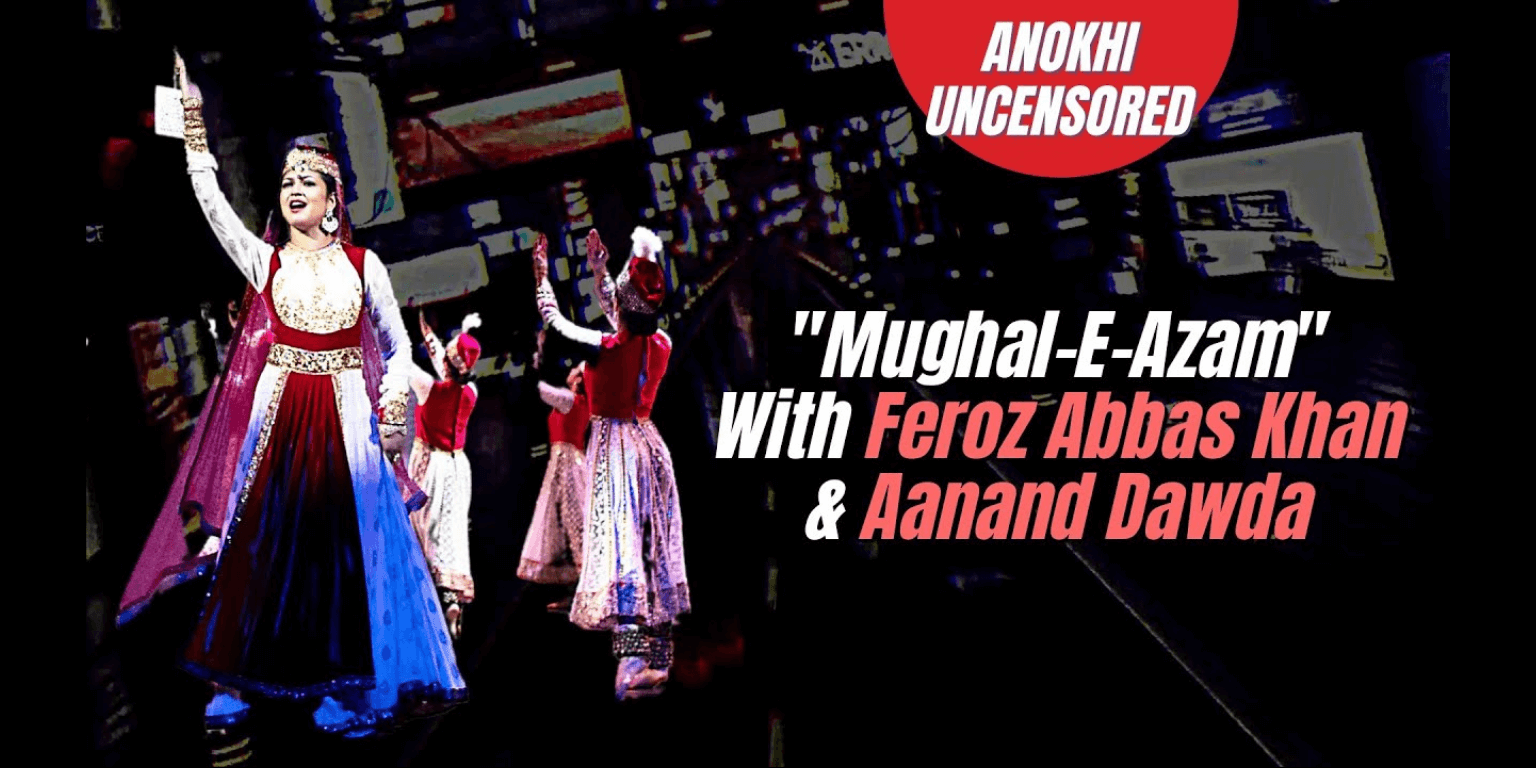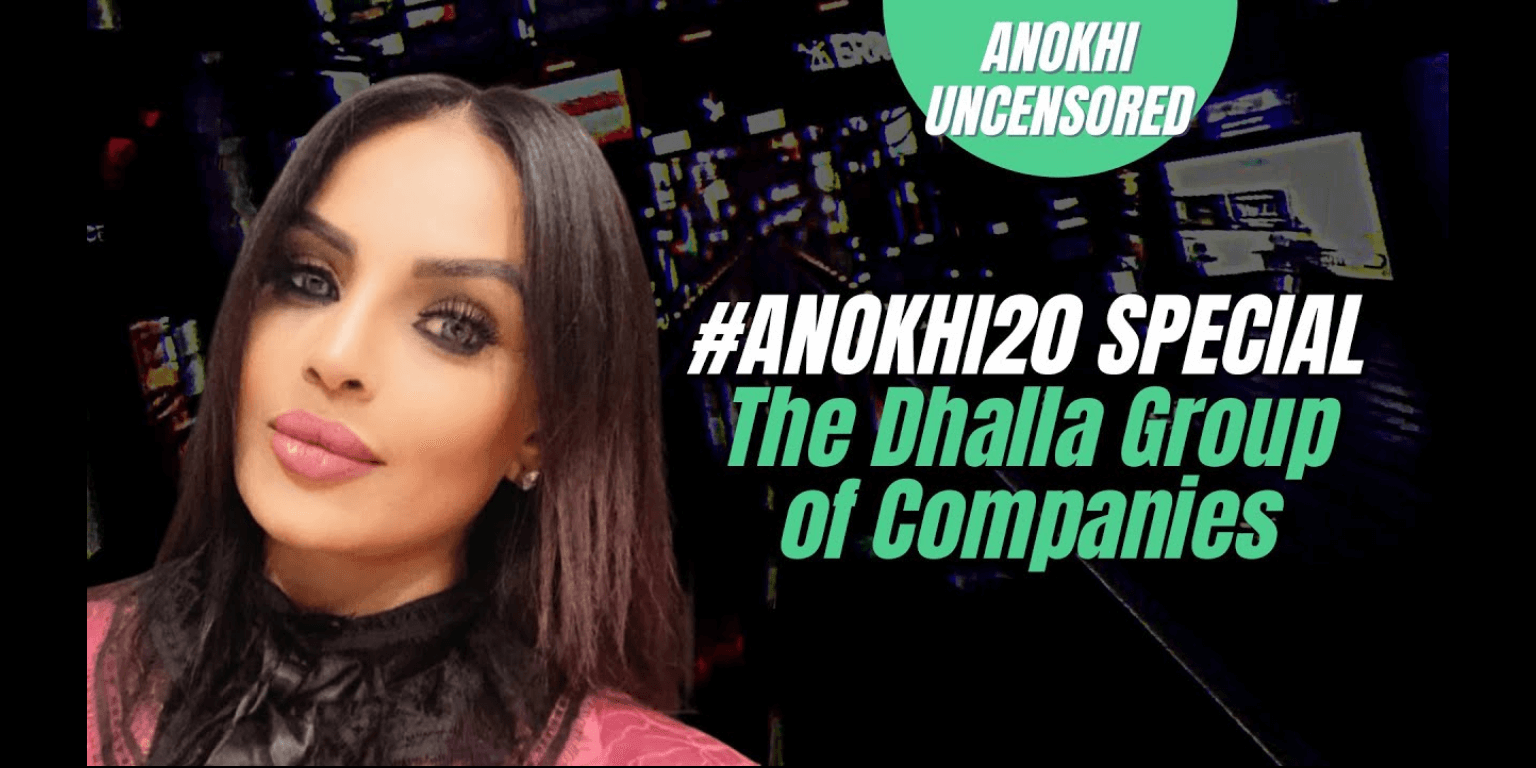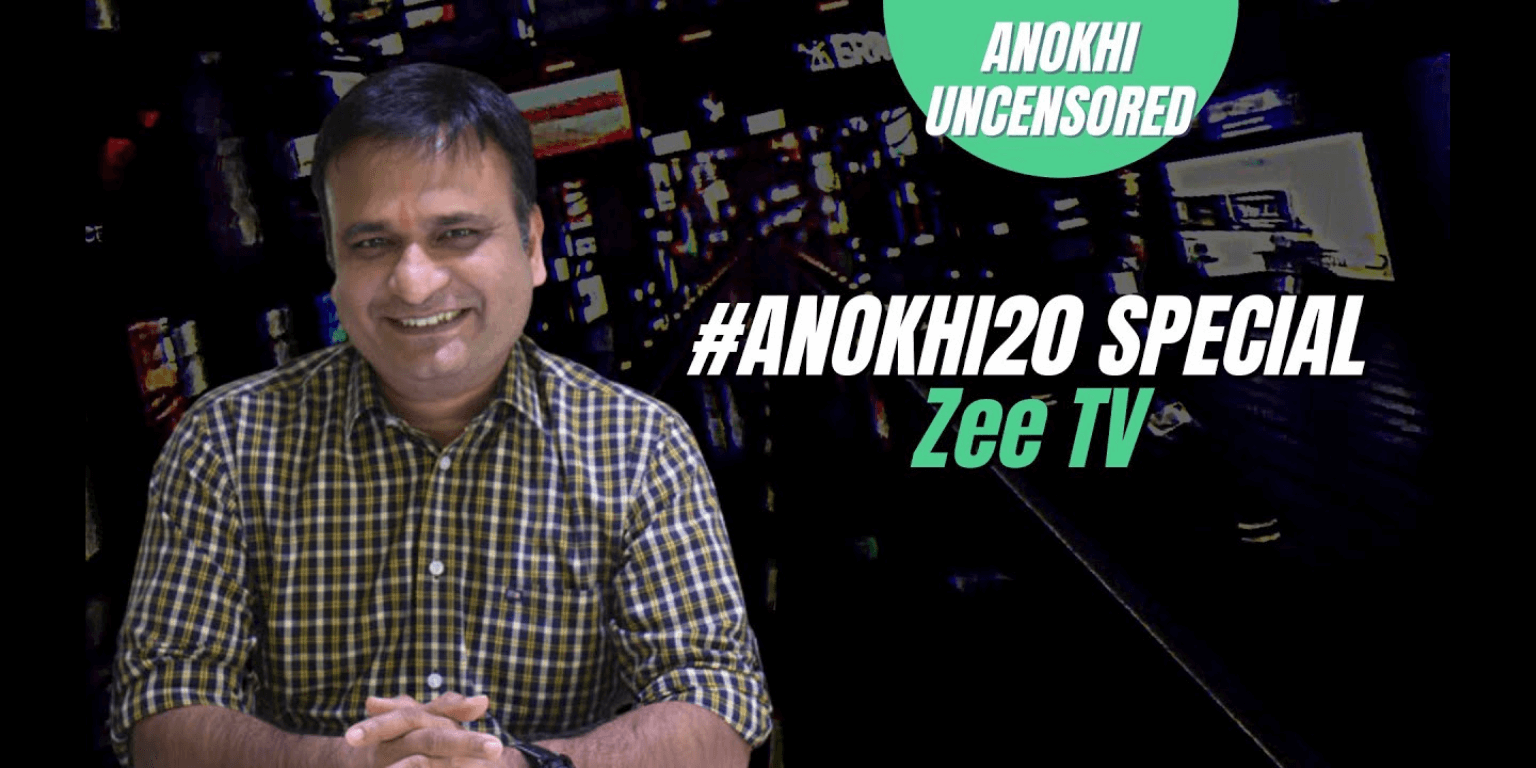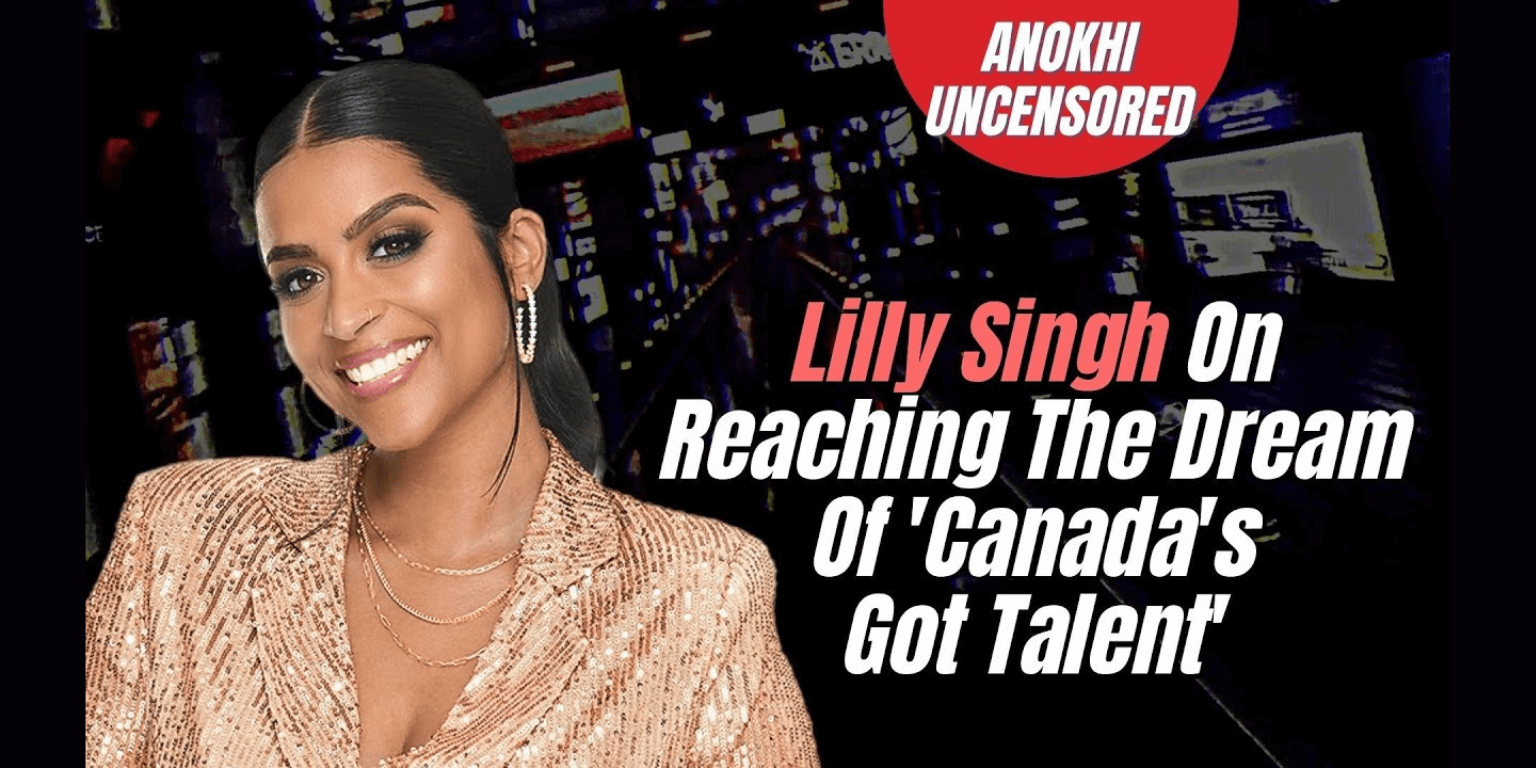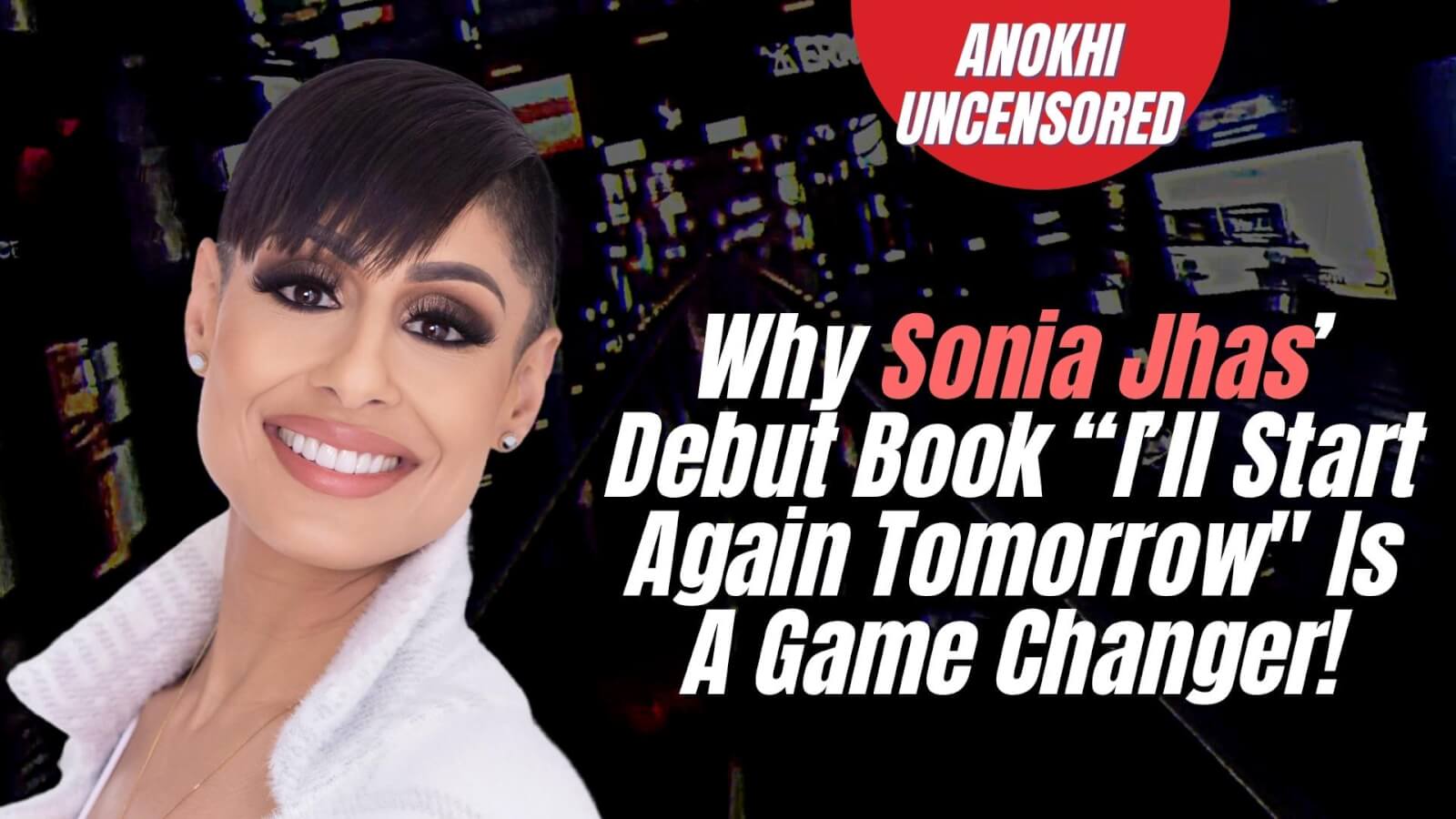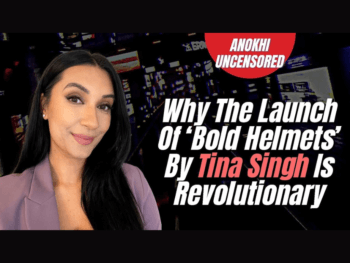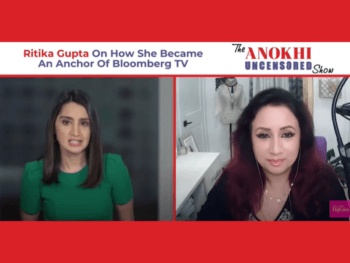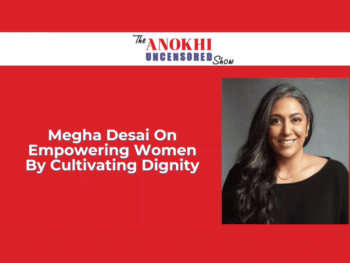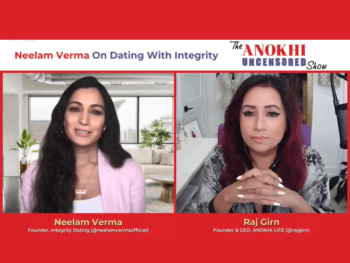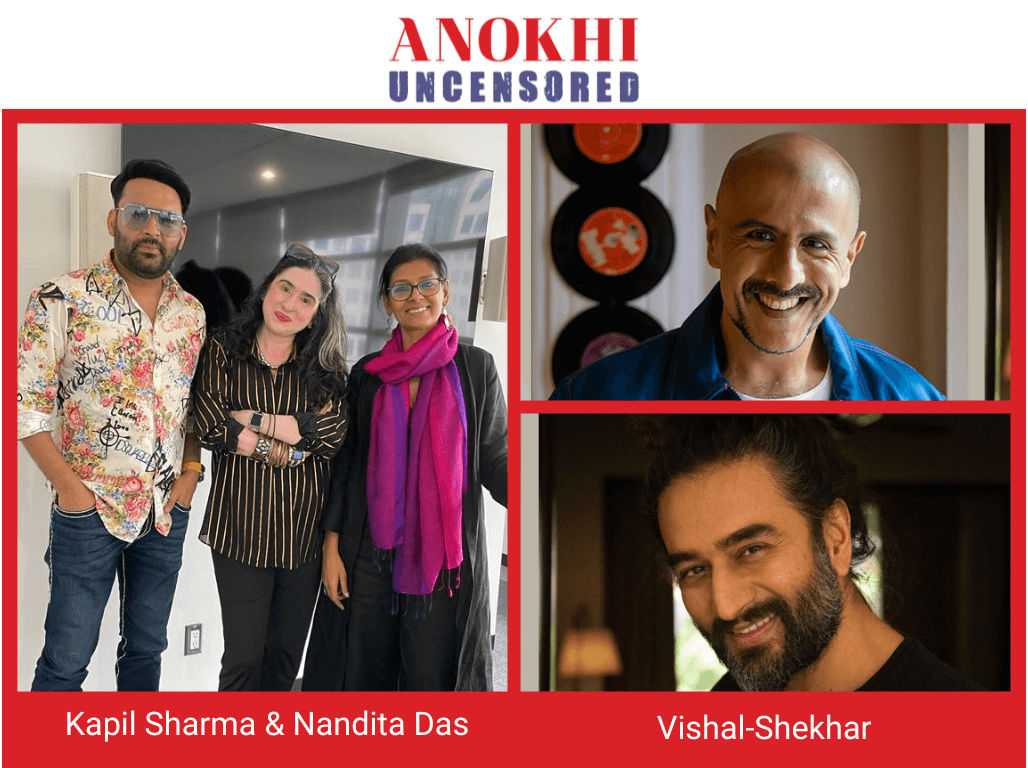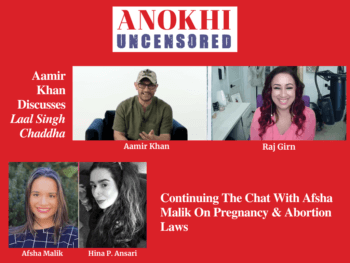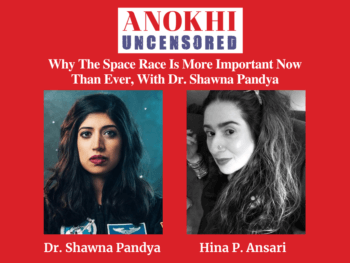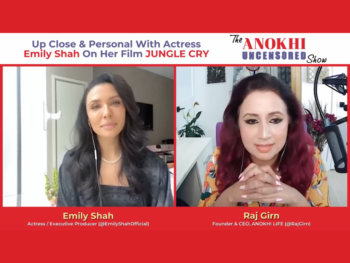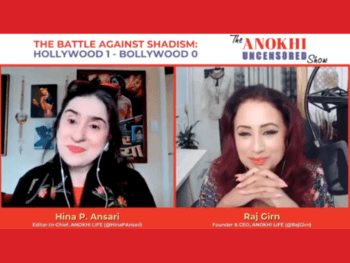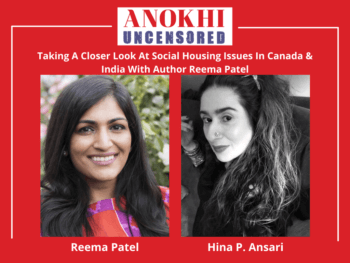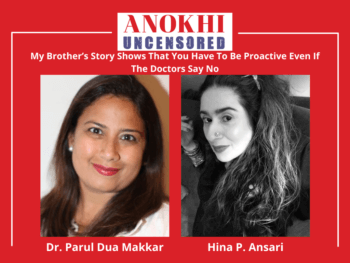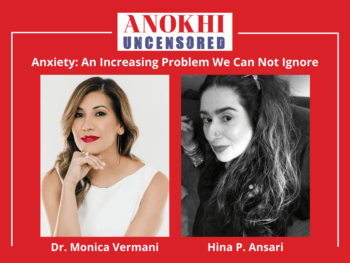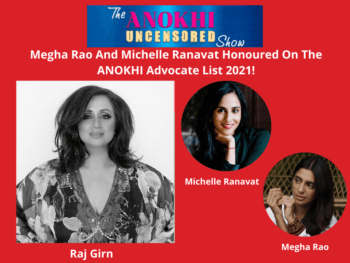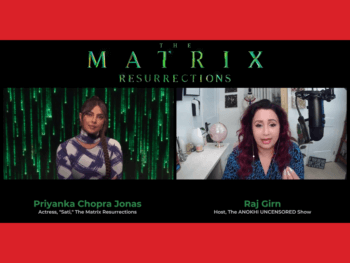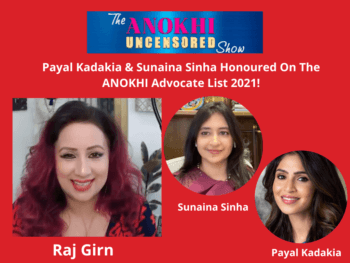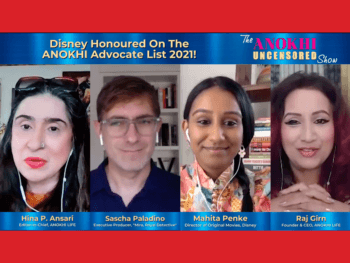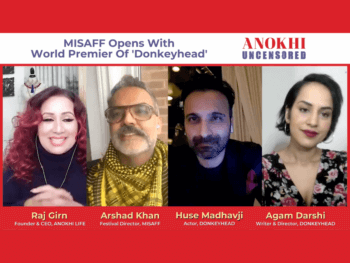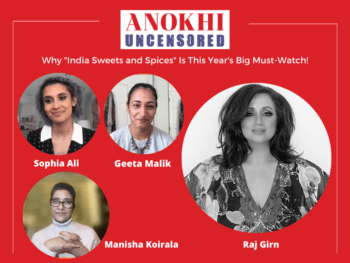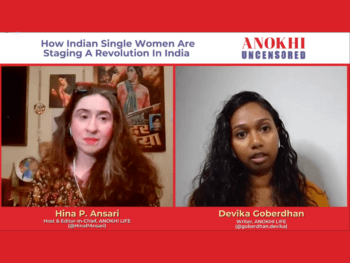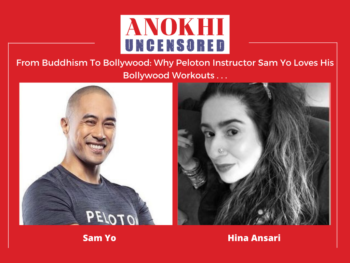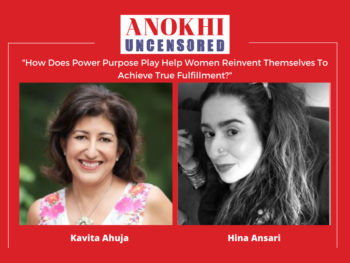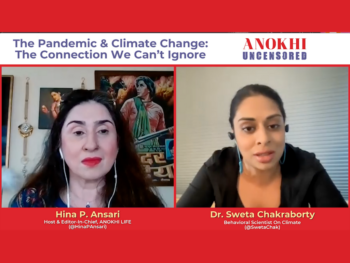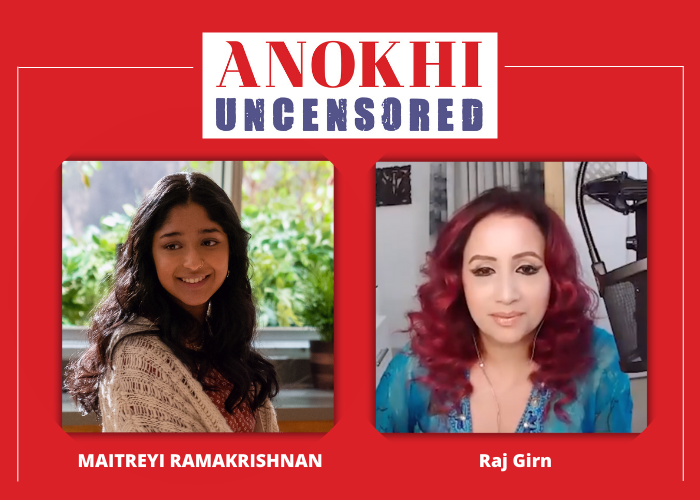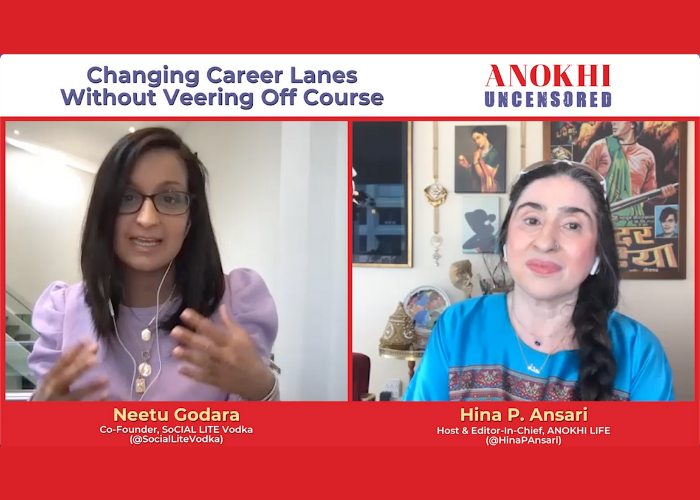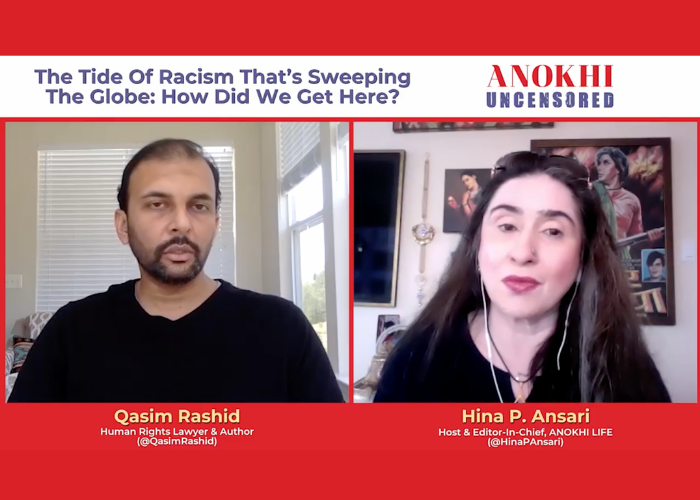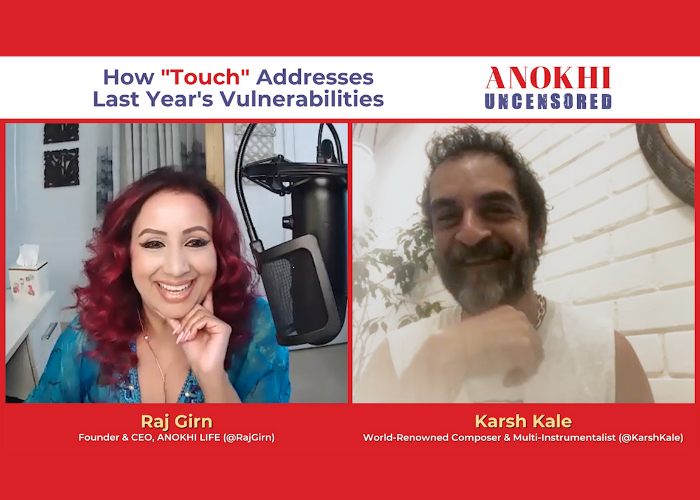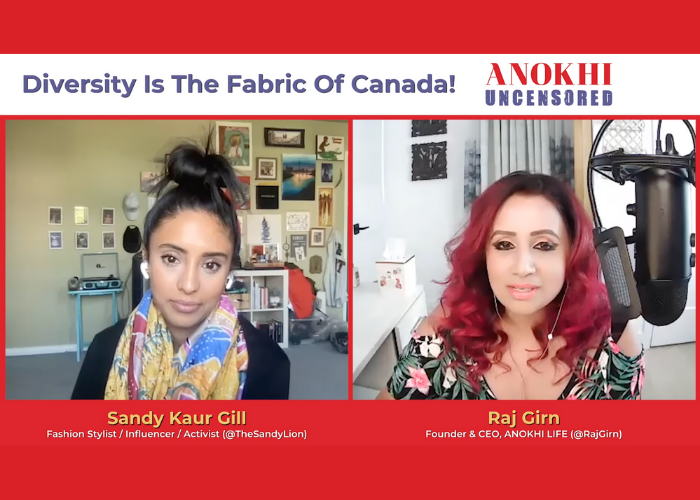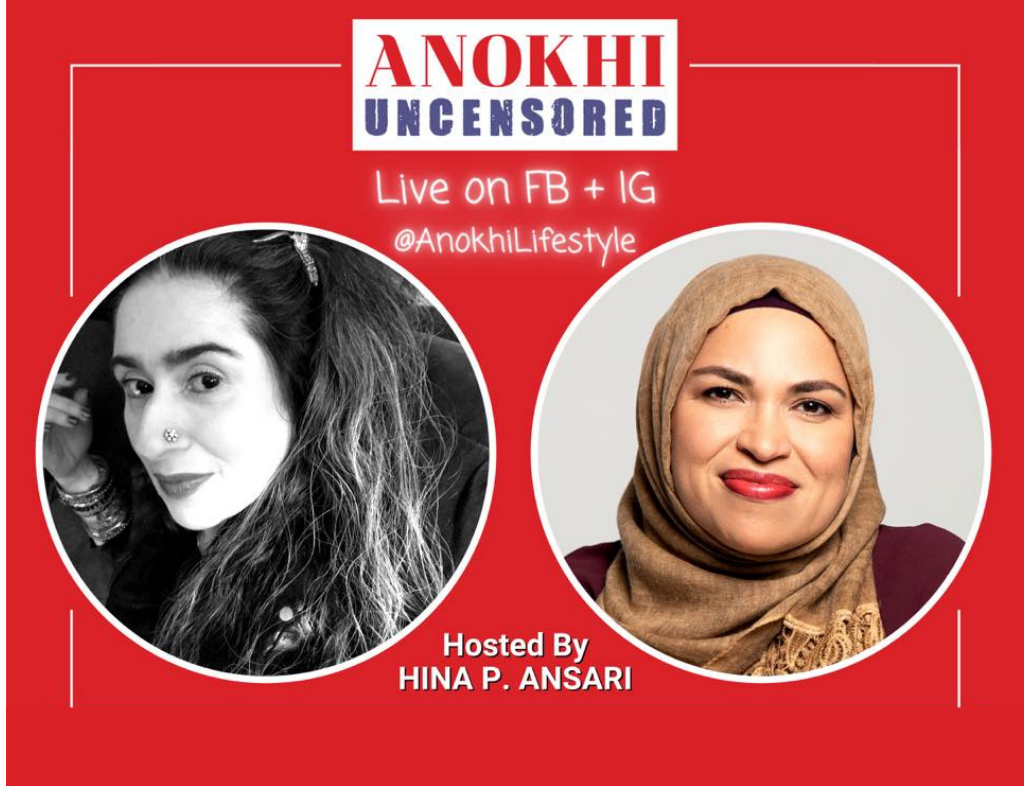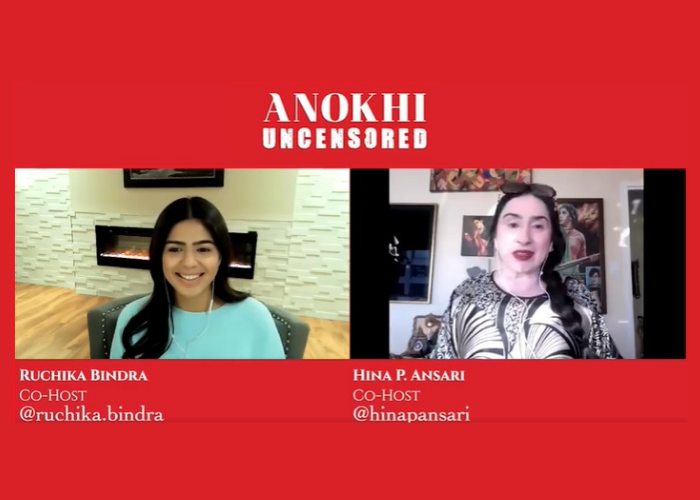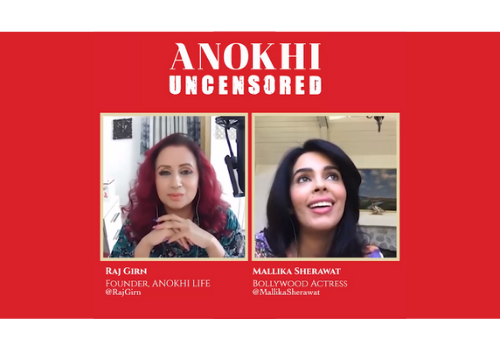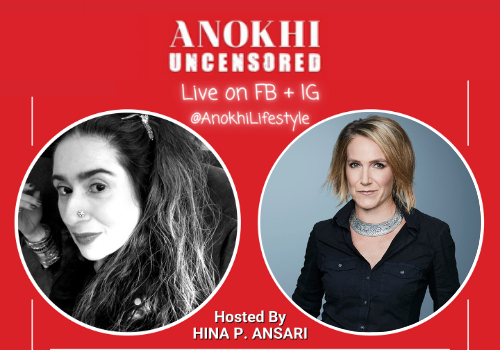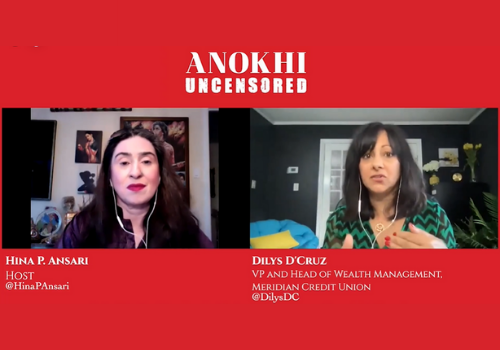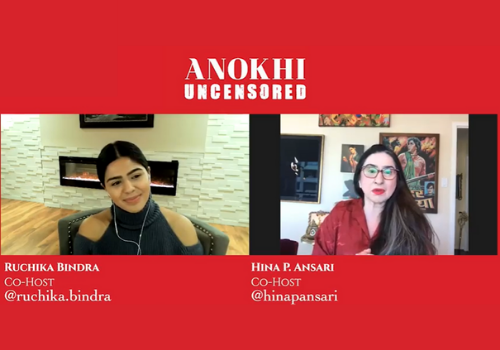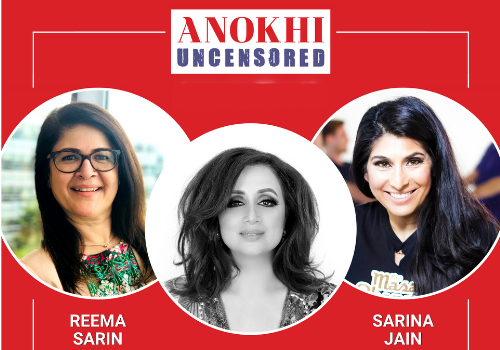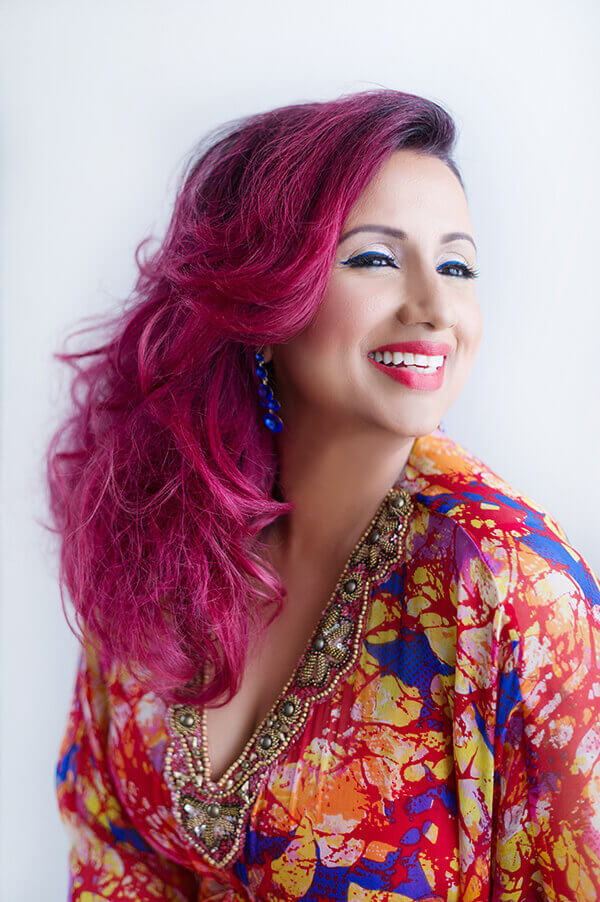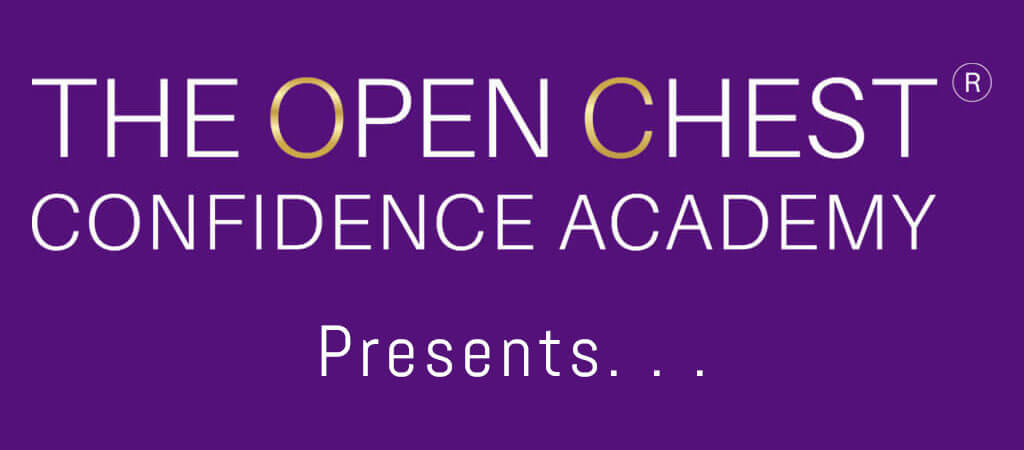ANOKHI UNCENSORED EPISODE 18: South Asian Film Festivals Unite As COSAFF To Bring Diasporic Films To The Masses With Pulkit Datta
Anokhi Uncensored Oct 05, 2020
ANOKHI UNCENSORED Episode 18
South Asian Film Festivals Unite As COSAFF To Bring Diasporic Films To The Masses
Hosted By Raj Girn

Welcome to #ANOKHIUNCENSORED! Thank you so much for your support for our amazing radio show by ANOKHI LIFE.
We are thrilled to announce that Anokhi Life is a proud media partner for the Coalition of South Asian Film Festivals (COSAFF). Our Founder / CEO Raj Girn joined Pulkit Datta of Coalition Staff to talk about why 7 South Asian film festivals decided to come together this year to get diasporic (and Sub-continent) films in front of global, online audiences.
INTERVIEW TRANSCRIPTION BELOW:
I am your host today, Raj Girn. I’m the founder and CEO of the umbrella brand, Anokhi Life. Today’s episode is called South Asian Film Festivals Unite as COSAFF to bring diaspora films to the masses. COSAFF or the Coalition of South Asian Film Festivals, which is a 15-day film festival kicking off October the 3rd, literally around the corner, has no less than seven South Asian North American wide film festivals involved. They are Tasveer South Asian Film Festival, Chicago South Asian Film Festival, Washington, DC. South Asian Film Festival, Nepal American International Film Festival, South Asian Film Festival of Montreal, Mosaic International South Asian Film Festival and Vancouver International South Asian Film Festival. In a word, wow. That is just absolutely amazing.
It’s just so exciting for me to actually be having this conversation and to talk to me about this is my special guest this evening. He is the artistic director of Tasveer South Asian Film Festival and COSAFF organizer Pulkit Datta. Welcome to our episode today to our live around the world with Facebook Live and also with Instagram Live. Thank you so much for taking time to sit and chat with me today across borders.
Thank you so much for having me. This is a pleasure.
Absolutely. Let me just fill people in a little bit about context to who you are, Pulkit is a film producer, director, programmer and community organizer. He started his career assisting renowned director Mira Nair and has since worked on a wide range of projects. He has worked on the creative development and production of a range of international projects, including scripted films, documentaries, commercials, short films, music videos and multiple campaigns in media.
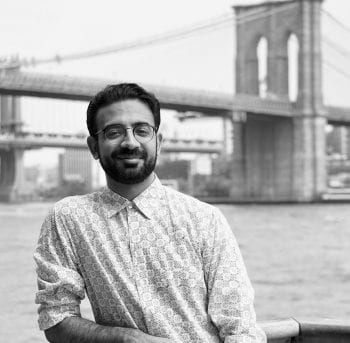
Pulkit is active in the filmmaking community. He runs workshops and incubators for South Asian artists. He’s a member of the Asian American Network, the Center for Asian American Media, and is also an alumni of IFP and the Impact Partners producing fellowship. He also serves as a consultant and a programmer for several film festivals and events working towards greater South Asian inclusion in mainstream. For more on him, check out his namesake website pulkitdatta,com. Again, welcome, my darling. This is so exciting.
Thank you. That was a great introduction.
Why they felt it was necessary to bring seven film festivals together
I’m always happy to have an introduction for someone that I admire who is like really working on the ground in many different facets when it comes to our community and pushing us forward. Regarding what’s going on right now, this year, I’ve seen like a lot of just pulling together of our community organizations across multiple industries. COSAFF is something that I’m very excited about because seven film festivals coming together. You know, my first question is asking you, why did you feel that that was necessary to do?
Yeah, of course. So, when the pandemic first started, a lot of festivals didn’t know what we were going to do. Tasveer, for example, we usually have our festival around this time. A lot of our other partners they also have festivals in the summer and fall. But what was happening with the pandemic was it sort of threw everything into confusion and uncertainty. As you know, it affected the arts community quite substantially as well. So, we all started talking to each other. You know, first we started with a couple of festivals. I think we started talking to the D.C. South Asian Festival then the Chicago South Asian Festival.
Then we just started bringing in more. We brought in, you know, the other festivals you listed. We all just sort of had these big meetings. We had lots of big meetings in the beginning and just decide what can we do, what is possible and what should we do. Out of all of this brainstorming and a lot of different ideas came out and we decided, you know, the greatest show of solidarity and support and strength right now would be for all of us to band together and to not only support the filmmaking community, but also support our audiences and our South Asian community. So that’s how the coalition was born. A lot of zoom calls.
Right. I can well imagine. Pulkit, I need to ask you something. Oftentimes it’s hard enough for niche, ethnic organizations to get financial support. It’s difficult enough in any industry. But in the entertainment business, in the media business, the fashion business is even more difficult. Then you throw in a global pandemic and the economic crisis that has brought with it, you know, clearly having to think on your feet and figure out how to salvage and save and move forward those things that are important to us as a community, you know, artistic expression and what that all means is a huge part of who we are as a community, historically speaking, as well as, especially in the last 10 years, as it relates to kind of the North American market.
Was that also a part of the decision that all of these big multinational corporations were kind of like, oh, my God, we don’t know how to support festivals and events this year because they used to kind of that live experiential and what that kind of really means, like a lot of companies don’t know how to translate that over into kind of the digital online sphere and space, which clearly is something that has to happen.
Right. That’s a really good point you bring up because we were seeing this not and not just in the arts and film community where there was a lot of funding being lost. Then also, every industry faced a loss because of the pandemic. So, when festivals started going online, I think the first sort of question from funders and sponsors and also just the festival community itself was how do we do it? How do we pull it off? How do we make it work? How do we translate that physical experience into this virtual experience?
I think there was a lot of learning on the go and there was a very steep learning curve for all of us to figure out how do we make this happen, how do we make it happen financially? How do we make it happen logistically? We had to embrace this idea of, you know, as long as we’re kind of working on it together, we will figure out solutions. In terms of the funding side, yeah, I mean, I think some of our traditional funders maybe weren’t able to continue supporting for the virtual festivals also because they were hit as well. It’s a completely understandable situation but we definitely did get a lot of support from people who could. And that’s very valuable to us as well.
Of course. So, let me ask you, why not miss the year? Like, why was it important that, the show needed to continue on, that we didn’t want to miss a year in diaspora films and South Asian films kind of getting the audiences that they need to get, and they deserve to get.
We did sort of briefly discuss that, we did sort of wonder, like, should we skip the year?
I love that you said briefly.

Well, the thing is, I think a lot of us also have this point of view of, you know, yes, this is a difficult year, and this is a difficult time. But how do we face this challenge? Obviously, there’s people who aren’t able to do things this year, which is completely fine and justified. But I think for us, we said, if we don’t do anything, there’s a lot of films and filmmakers who will not get that platform for their films. There was a lot of filmmakers who had films that were ready and done and then suddenly had no festivals to go to. So, we wanted to be able to do this to uplift that community as well and saying, look, we can still give you the platform.
There are seven festivals who have been championing South Asian voices and storytelling for many, many years. We have a very wide network of filmmakers who come to us constantly. For us, it was very important to continue supporting them and figure out a new way to support them. I think that that discussion around skipping the year was very brief because at one point we were like, you know what? We can do it. Let’s just do it.
What Was The Criteria For Partaking In This Coalition
Yes, absolutely. If there’s one thing that we’ve learned about being South Asian, especially in North America, is where there’s a will, there’s a way. We’ll figure it out and we always support each other. I think that’s the big thing here is that, you know, the support that we bring to the table as a community across all the things that we need to support I think is a huge testament to why such a comparatively small population ethnically is doing such massive things in North America.
Let me ask you this. So, you know, you have seven film festivals that are partaking in this coalition. Was there some sort of a criteria that they needed to meet or was this kind of like a free for all? Because I know that not all the festivals that are South Asian Film Festival based are involved in the coalition. Let’s be transparent about that discussion as well.
Sure. So, you know, like I said in the beginning, we had these very big zoom calls with a lot of people. In the beginning, we did invite a lot of other South Asian festivals as well because we wanted it to be completely open. We sort of opened our doors and said, anyone who’s interested, let’s talk. But again, this year, as we all know, kind of changed week to week. Everything was so unpredictable. We couldn’t predict what would happen next.
I think some of the festivals in the beginning that were part of the initial conversations had to bow out because of whether it was bandwidth reasons or resources or anything. Some festivals decided to skip this year. We obviously went in saying we would love to have as many as possible in the coalition, but for their own reasons, some of them were not able to participate. In that sense, there was no like major criteria. We wanted to get South Asian festivals in the US and Canada, and it was supposed to be some sort of a joint effort. So, it was everyone pulling together our people like our staff, our resources, our volunteers. So, it’s all one big joint effort.
Absolutely. You just mentioned the groups of people that came together. Am I correct that this is an initiative that is completely 100% volunteer run? Like, is that true?
I wouldn’t say 100%, but mostly volunteer run.
That’s the other thing that I love about our community. The alternative is not a solution for us. So, we just got to get in there and get it done.
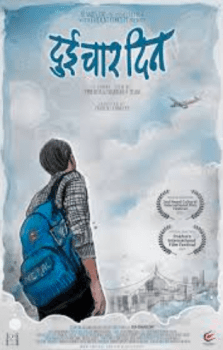
We’re really lucky because with all of our partners, all the festivals. Everyone’s got very dedicated, passionate people on their teams. Everyone’s got their own skill sets and their own experience. It’s really useful when we’re talking internally with the team to be like, hey, we need this done, who’s got the skills or time for that know? So, everyone kind of just jumps in and does what they’re what they’re good at, what they’re passionate about.
Absolutely. So how has that been? Because everybody has their own kind of mission mandate, their own kind of culture around the community that they put together with their film festival. Who’s the top dog? Who gets to veto decisions in order to move things forward? Because otherwise you’re constantly sitting at the table.
Yeah, we kind of joked in the beginning that people usually think that South Asians cannot work together. We did have that joke internally. Sometimes I know when we told other people or other organizations outside of the coalition that we’re doing this and they were like, how? How is this even possible? So, that was obviously one big driving force. We have to be able to show the community that we can work together. That’s goal number one. And yes, when you have seven festivals who each have slightly different missions, slightly different types of films that might screen, there’s definitely a lot of overlaps obviously in the films we’ve screened in the past, but everyone has a slightly different approach.
So, we kind of are very transparent about that from the beginning, saying that, look, we have to set sort of criteria and ground rules for how things are going to get done. On the logistical side, Tasveer is sort of the producing entity of the festival but we’re working as a coalition in the sense that all decisions are made sort of by committee. I wouldn’t say there’s like a veto thing. It’s basically, you know, we kind of help with running the festival from a producing point of view. Then what happens is we have different committees to decide, like programming and marketing and like different parts of the festival which have members from every coalition festival in it. So, that way then we can sort of have these collective decisions in smaller groups, which does make it easier.
So, you have a system? Like you have a business operations system to make sure that whoever’s doing whatever is the right kind of man or woman for the job, right?
Yes, exactly. And the way we did it in the beginning was we said, look, you know, whatever you are interested in or where your strengths are. Sign up for those tasks, those committees, and then then we would sort of go from there.
How They Created A Coalition Around Different Mission Statements
So, let’s talk about the mission for this particular festival. You all come with your own respective mission statements, your own kind of mandates. How do you create a coalition around that?
Very good question. I think the one thing that united us from the very beginning is we are passionate about uplifting South Asians and South Asian stories, whether it’s diaspora, whether it’s from South Asia. That was sort of our core unifying mission in the beginning. And then what we did was then we all got together, we sort of set out these guiding principles. That was where we said, okay, you know, for example, we have to be fully inclusive. So, we have to be inclusive of all religious backgrounds, all South Asian countries, national backgrounds, genders, everything. We have to be inclusive of that gender, sexuality, everything else. Everyone agreed on that.
Then also, in terms of balancing South Asian diaspora versus from South Asia, because those are different kinds of stories. We wanted to have a balance of that. Those are sort of our overarching principles, our mission. Then obviously, the next mission was to deliver this platform that would provide access to all of these new South Asian stories for all of our audiences. Then the last thing we agreed on was the entire festival would be free. It’s completely free to view you can watch all the films, all the Q&A’s, all the industry panels, everything is free, and we wanted to remove the barrier to entry for the audience as well.
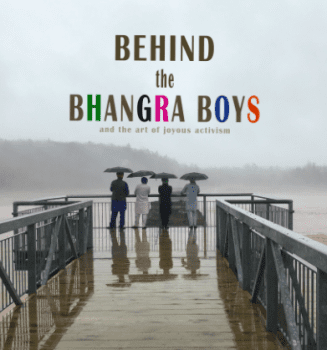
Wow that’s the big one. I guess it kind of makes sense because at the end of the day, what we’re trying to accomplish here is to get as many eyeballs as possible on these films that are very deserving to get that kind of accessibility, right? So, let’s talk about the films. Is all the programming done? Fifteen days is a lot of days of programming.
It’s a lot of days. I think the new world of online festivals, we have to figure out a different kind of programming structure. The way it worked and the way our coalition worked was we had a programming team which had representatives from every festival, every coalition festival. Then the way we set it up was each festival would sort of put in what they thought was their best or their strongest films into a collective pool of films. T
hen once we had this collective pool of films, which if I remember correctly, I think it was around 150 or 200 films total. Then our amazing programmers from all festivals watched everything. Everyone watched everything and we had some very spirited conversations and debates around the films. A lot of very interesting programming meetings where people are passionate about their different films that they like. There was a lot of really, really interesting conversations happening. We basically then whittled that number down to I believe, 64 total films.
Wow. All of that for free? There’s a question coming in that I wanted to jump to that right now. How can people get access to this film festival? And then we’ll carry on talking about the films.
Very good question. So right now, everyone should go to cosaff.org. On there you will see a big button that says register. Even though it is free, we do require people to register for the festival. So, when you go to register, you’ll see all the programming in there, then basically the day of the festival will send out an email message to everyone saying where they can watch these shows.
Okay, that’s brilliant. So, folks, you heard it right here. You need to make sure that you sign up, right? We need to make sure that everybody is able to get all the messaging that you need to get and that’s the purpose of the sign up. And for you to get all of the codes and the log ins and all the last-minute changes that sometimes do happen, you want to be in a position where you are on that list. So, again, what is the website, Pulkit?
It’s cosaff.org.
What To Expect With This Film Festival
Brilliant. So, let’s go back to the programming. We’ve got 15 days. Can you give us a rundown of what people should expect? Because you know that we need to have like an opening night, you know that we need to have red carpets. Like, how are you handling all of this?
Very interestingly, there’s a lot of creative workarounds we have to figure out. As everything is virtual, the films are all being hosted on one platform, and it’s actually being hosted by Vimeo’s OTT platform. Once we launch it, it’s going to look like any other OTT platform where you can filter by the themes and genres and things like that to watch your films. The programming is structured in two ways. One is most of our films are going to be available on demand for the full 15 days. So, that means from day one to day fifteen, you can watch these whenever you want in your own time. As long as you have a computer and access to the Internet, you can watch them wherever you are.
And just for that 15-day period, then it’s on locked down?
Yeah, just for that 15-day period. The flexibility there is, you can watch them any time. So, if you’re someone who stays up late at night watching stuff on your laptop, it’s a great time to watch these movies. Most of them are going to be on VOD and then every day we do have live streaming programs. So, what’s going to happen is every day of the festival, we’re going to livestream certain films which are going to be followed by live Q&A’s with the filmmakers and some of the actors and other people behind the films. So, that is all again listed on our website.
If you go to cosaff.org under schedule, everything is clearly marked on which one is live in which one is VOD. The live stuff is going to be really interesting because that’s where we get to engage with the filmmakers so that’s what brings in the interactive element that people will miss from a physical festival. The great advantage we have of doing a virtual festival is people can tune in live for the Q&A’s from anywhere in the world.
That’s got to be exciting, right?
It’s very exciting. It’s also a logistical challenge, too, because they’re catering to so many time zones. But it’s been really amazing because traditionally with a festival, you would have people fly into your city for your festival. In this one, it’s been really amazing because they can stay wherever they are and we just bring them in on virtually.
So, let me ask you this during these 15 days that kick off on October the 3rd, there’s 64 films, there’s live Q&A’s, all of which can be accessed during that lockdown period of 15 days and only during that time, guys. It’s completely free. You just got to go to the website, which is, again, cosaff.org.
So, here’s a question for me. If I wanted to go into the live Q&A’s, do I get the opportunity to ask a question beforehand or during the time that this is taking place is or is it just like a view only scenario, both of which are completely great, by the way.
Yeah. We will have some mechanism to ask questions. We’re working on the backend right now. But yeah, we are trying to make them as interactive as possible so you can view, or you can ask some questions while you’re there. The other thing I was going to say I know you asked about the opening night. So, I do want to talk about that.
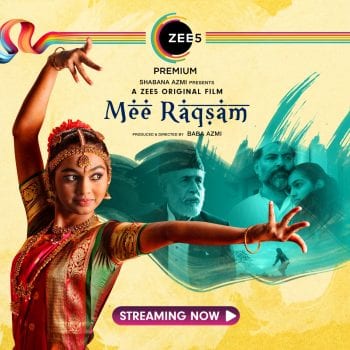
Our opening night film is this lovely film called Mee Raqsam and it’s directed by Baba Azmi and his sister, Shabana Azmi is presenting the film. So, this is Baba Azmi’s debut feature film and it’s a beautiful film and it’s about dance. It’s about religious harmony and communal harmony in India, stuff like that. We are planning our opening night, October 3rd, we’re trying to put together this red carpet, so I won’t give away too many details of what that’s going to look like, because I think that’s going to be fun to watch.
So here’s a question for me as somebody that would obviously be participating in this, as a viewer, as someone that’s kind of taking this in, once you register, do you get like access and you can just kind of go in when the programming is happening, when it’s the live programming, or do you have to specifically sign up for each of them individually?
Yeah, so the way it’s set up is when you go on the website, cosaff.org and you go to the registered page, you can register for the whole festival in one go, which means you get on our big mailing list. On the same page, you also see links to the individual live events.
Okay, so you have to sign up for those separately.
Yes, and we are going to do is every day of the festival, we will send the latest updates from that day of what’s happening and where to watch them.
Okay and for somebody that may have missed any other lives that are going on, are they available on demand after they’ve gone live during the 15 days?
Some of them will be. So, again, that’s all going to be information on our platform. So, for example, some films have a limitation of, say, 24 hours. So, you have to watch them in 24 hours. Some of them will be available for longer than that so all that information is going to be available to the viewers when they log in and register.
Perfect. It’s all about the registration guys and registration is now open. So just go check that out immediately and just really take your time to kind of peruse the site, because when you’ve got 64 films from seven different film festivals, you’ve got some live versus some on demand and you’ve got 15 days to consume all that. You know that you got to take a vacation. If you’re not already off work, you got to take those two weeks.
And there’s more. We also have industry panels happening
Oh, my gosh. Let’s talk a little bit about that. I love those.
Yeah. So, we’re going to have about six or seven different industry panels throughout the festival. These are all going to be live, but they will stay on after the live is done. We have some really exciting panels. We have one on South Asian diaspora actors from the US and Canada. We have some great people in there. For example, Maitreyi Ramakrishnan, who is from Never Have I Ever on that list. The main lead actress. She’s amazing. We have Hamza Haq, who is Canadian and he’s in Transplant. We also have Sugith Varughese, who is in Kim’s Convenience on Netflix. And then we also have Tiya Sircar, who is American. She was in NBC on The Good Place and several other shows. We have that really exciting panel about diaspora actors. We have another panel with the creators of South Asian streaming series.
So, tell us a little bit about that.
Yeah, of course. So, if you’ve seen shows like Delhi Crime on Netflix. Indian Matchmaking, which everyone was talking about. We also have Four More Shots Please! which is on Amazon Prime. So, we have the creators of all those shows on the panel. It’s super exciting also because today we found out Delhi Crime and Four More Shots Please! were nominated for the International Emmys. So, you know, we have some great, great people coming. Some of the other panels. I’ll give you a brief rundown. We have a panel on distribution. So, we have someone from Fox Studios. We have someone from Short of the Week, which is a short film distribution platform.
We have a great distribution panel, especially distribution in a pandemic. So, like, how was distribution changed now. We have a really exciting masterclass with Nandita Das. As we all know, she’s a legendary actress, one of the best in the game. She’s a fabulous actor. She’s also a director, she’s a filmmaker as well. We’re doing a master class which is actually being co-presented with the Chicago International Film Festival in Chicago. They also want to co-present this masterclass with her. It’s going to be this really exciting, in-depth conversation with her about her acting techniques and her filmmaking and how does it intersect? She’s very passionate about a lot of social causes. So how does that come into play with her storytelling? We’re also doing that. And then we have a few other really interesting panels. We have one on entertainment law.
I think that’s really important. It’s really great that you guys have actually really thought about kind of the 360 degree needs and requirements of people that are in the filmmaking business.
Tell us a little bit about this, because most people kind of skip over things like this. Now, I’m not going to do that. Like, I think it’s important that people understand why this particular panel is important for them to check out if they are in the filmmaking business.
I appreciate that. Yeah, so we wanted to make it not just accessible to people who love films and people who love watching films and watching these actors and performers. We also wanted to make it informative and educational for us filmmakers. I think both sides are equally important, and especially right now with the pandemic everyone sitting at home. We wanted to talk about things that are changing the industry. Distribution is changing big time, so we want to talk about that. Entertainment law, for example, that is also changing. So, we want to focus on that. We also have another really special workshop where we’re partnering with a crowdfunding platform called Seed and Spark, which is one of the leading crowdfunding platforms. They’re doing a workshop on crowdfunding and how to build an audience online which is completely tying in beautifully with what we’re doing. We’re also excited to have all these partners because all these different industry experts are coming together to kind of speak to our audiences. Which is a very exciting thing.
Who To Contact For Sponsorships
Absolutely. I have to rummage up some support now for the festival, so let’s kind of go into that arena right now. And the other thing I wanted to just bring out in case there are any companies out there listening and they would like to get involved from a sponsorship perspective. Who would they contact and what are some of the things that are noteworthy about that?
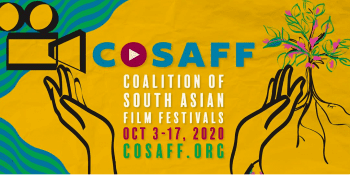
Absolutely. Yeah. We’re happy to talk to anyone who wants to come and sponsor or partner with us. You can either email me. So it’s [email protected]. We also have a general email, which is [email protected], so you can even contact us there. We’d love to talk to anyone who’s interested in partnering or sponsoring. The opportunity here is quite massive because you have seven film festivals from across the US and Canada. You have these massive audiences that every festival has and everyone in between. The beauty of this festival is it’s all the films are accessible minimum across North America. A lot of them are available globally as well. But anyone in North America, any corner of the US and Canada can watch these films and watch these panels. So, the audience you get is potentially very massive. So, for anyone who wants to come on board, let us know.
Is it also open to patrons as well, for anyone that isn’t a company per se, but is a real kind of avid supporter of the arts? Are there opportunities for them as well?
Absolutely. So, when you go on the register link below the register option, there is an option to donate. We accept donations happily because this is a free festival. Most of the people working on it are volunteers, it’s a lot of sweat that goes into it. A lot of us are not sleeping. Any support really, really helps us.
Absolutely. So, you have some really renowned and distinguished advisors that are a part of the coalition this year. People like Mira Nair and Sharmeen Obaid-Chinoy. Tell us a little bit about that.
Yeah, every festival has their own sort of like advisory board or advisors on their thing. We definitely tapped into our connections and our resources through these advisors to see how we could put this festival together. So, you know, the people you mentioned, they’re not actively in the festival, but they’re advisors. We have actress Shahana Goswami, who is also a lovely actress. She’s also one of our jury members.
We all had to sort of tap into all of our sort of collective networks to make this happen. It’s been great. I think, our brainstorming meetings where some of the most interesting and the most fun, because it was just like, let’s just throw everything out there and see what we can get and see what works together.
So are there any specific sponsors shoutouts or partnership shoutouts that you want to throw out there, of course, you know, Anokhi Life is a proud media partner, we are thrilled to be a part of this. And moving forward, whatever support you guys need we’re there for you, just know that.
I really, really appreciate, we all really appreciate Anokhi being a media partner. This is really fantastic. We have a lot of great sponsors and partners. For example, the India Center Foundation, which is based in New York, they’re one of our sponsors. They’re also running a program, one of the shorts blocks, and they’re doing a Q&A. So, we actually have a block of films called Kaleidoscope Stories, which is five short films which are also diaspora filmmakers.
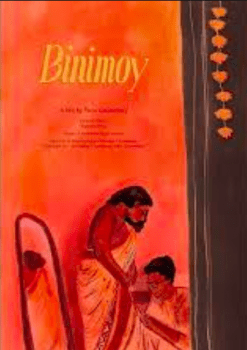
So, we’re calling it Kaleidoscope Stories. And the India Center Foundation is running that program for us, which is really exciting. Then we also have the actors’ panel earlier. We have partners with that, the SAG-AFTRA Foundation, which is a union in the US, and then also Actra Toronto are our partners on that, which is really exciting.
We also have Short of the Week, which is a short film platform. They’re partnering with us. We have a lot of really interesting, exciting people on board. The other thing also I wanted to talk about is in the opening night, we have obviously Baba Azmi, Shabana Azmi, Danish Husain who are all the cast members of the film. It’s being moderated by Anupama Chopra from Film Companion. So, that we’re also super excited about to be working with them.
Oh, that’s wonderful. Since we hit up the opening of the festival, how are you closing it out?
We are closing it out with a wonderful film called Eeb Allay Ooo, and we’re doing a Q&A with the filmmaker and we are also going to be doing jury awards. So that’s going to be exciting. So definitely tune in for that. You know, like I said, we’ve had a jury working hard behind the scenes watching the films, and they are going to be coming in announcing the award winners at the end of the closing night.
I don’t know how you guys are pulling this off, but, you know, the coalition concept to the initiative, I think is genius because there’s no way that we could have a year where we’re not supporting our filmmakers, our talent, our artists, the people that actually put these films together from the grips to volunteers.
The industry needs the support of the community right now. I know I’m speaking on behalf of the entire coalition. I’m speaking on behalf of the entire arts community across North America. You’ve got to support this. You’ve got to go and register, because without your registration all of this work, it’s for nothing, you know? If there’s one thing that we’ve learned within our community is that community is everything and we need to support each other.
On that note, I wanted to ask you Pulkit, is this something that you feel that you guys would think about maybe doing again? Would this be like an annual scenario that you do from a coalition perspective, or do you feel that this is just been that year, that change is happening and we’re all going through kind of this big global upheaval? So, coming together is really the only way that we could salvage the accessibility to such amazing and prominent films and body of work from our community.
Absolutely. I mean, in the beginning when we got together, we said, you know, let’s do it for this year because again, like I said, we don’t know what’s happening, right? Every day is unpredictable this year. So, we said, okay, let’s just put on the best coalition festival we can this year. I love that you mentioned community because community is super, super important to all of us.
We’re learning constantly as we’re doing this. We’re learning what works, what doesn’t work, all that stuff. We definitely want to continue this coalition in some shape or form after the festival is done, whether it’s going to be ongoing programming or ongoing screenings or whether it’s one other big festival, we don’t know yet. We don’t know yet, to be honest but definitely I think what’s come out of this is really great friendships between our teams. Everyone on the team will tell you, we’ve been having a lot of zoom meetings. There are certain days when it’s just back to back zoom meetings and then we have a great time too. We do happy hours and we have drinks together.
I need to be invited.
Absolutely.
[both laugh]
Why Supporting Diaspora And Niche-Based Film Festivals Is Important
 I would like to do a happy hour. I think we would want to do something together. We just don’t know what it looks like after this. Our goal right now is to deliver the best possible COSAFF.
I would like to do a happy hour. I think we would want to do something together. We just don’t know what it looks like after this. Our goal right now is to deliver the best possible COSAFF.
It’s about those fifteen days that are going to be starting on October the 3rd. Fifteen days free programming of 64 films across contribution and curation of seven film festivals. I want to ask you this question for those people who aren’t really filmgoers, don’t really see the value or the support that’s needed to support films from our community, whether it be the diaspora, whether it be from the subcontinent.
What would you say to them in regard to why supporting diaspora and niche-based film festivals is important? Like in other words, what is it that’s happening there that you can’t get from mainstream film festivals?
I’m really glad you asked me that, I think I would answer that in two parts. One is, I think within the South Asian community, we sometimes don’t take the arts as seriously. I’m a filmmaker by profession, and that’s all I do. Also, just the encouragement doesn’t always come from the community because filmmaking or the arts aren’t seen as a viable career option. So that’s one thing we definitely want to prove to people saying that look the arts are incredibly valuable to all aspects of society, more so, especially during this lock down year where, you know what have people been doing sitting at home, they’ve been watching stuff, they’ve been watching movies and TV shows. They’re listening to music. They’re reading books. That’s all art.
So, when people talk about why should we fundraise? Why should we support the arts? It’s like, that’s actually what’s keeping you going. Like, if you were sitting at home in lockdown and had no arts to consume, you would go crazy. I think people kind of sometimes take it for granted, which is why we’re trying to show like, look, this is a very valuable part of our lives. And then, the other part of that is all of our programming, whether it’s diaspora or from South Asia, it’s very independent at its core. It’s a lot of you know, we don’t have sort of the mainstream films or mainstream commercial stuff.
We have films by people who are really first of all, many of them struggle to even make their films, financially, logistically, whatever, politically. They made it and they’re telling very honest and raw stories and they’re experimenting with the kinds of stories they’re telling, they’re experimenting with, you know, genres and how to convey messages to people. We have films that are exploring, for example, all kinds of sexuality. We actually have a short film block called Celebrate the Spectrum, which is LGBTQIA like all of it.
We have some fascinating stories there. We have animated films. So, like how many animated films have you seen by South Asian creators, you know, purely created by South Asian creators. Films made by women. We have a lot of films made by women. These filmmakers we have are just pushing their boundaries in so many ways. Very authentic, very real stories.
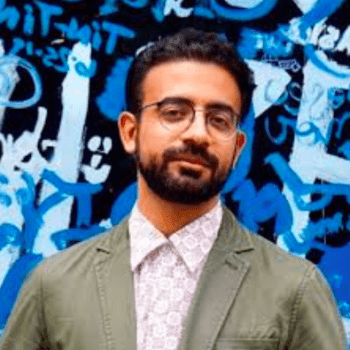
I think the audiences will actually get to see such a wide variety of experiences in these 15 days. And from corners of the world that you might not be familiar with. For example, we have a documentary from South Africa, which is from the South African South Asian diaspora community there. We have films from Nepal and Bangladesh and Sri Lanka. So, it’s a very wide array of films and panels and stories.
Absolutely. We’re getting close to kind of closing off, but there’s so much you and I can talk about. I think that the key message here is, and I will say from my personal experience, as soon as Covid hit and lockdown happened around the world and people went into this whole kind of confused mode of what am I going to do with my time, I wasn’t one of them. I have to admit, and I’m going to share that right now.
The reason is exactly what you’re saying. You know, art, multidisciplinary art is what saved me and that kept me going. That gave me a reason to be able to get up in the morning and have structure. And it’s funny because a lot of people look at art and films as being something you do when you’ve got time or you kind of put it into your schedule after your real schedule.
Art has always been a part of my actual real schedule because I feel that without it keeping kind of that mental stability and feeling like you are a part of something greater than whatever it is that you may be experiencing at any given moment, that feeling of community is best felt through the arts.
If you out there are going through a hard time right now and you’re like, you know, this is just been a really tough year for me and rightfully so, it has been. We’ve all gone through a different, relatively harsh experiences as well as, on the flip side, some really fundamentally incredible experiences about learning about our self and self care and all those things.
The world of film, the world of diasporic film, the world of the struggle of being able to make a film is something that I think is really, really important in our society today, especially as South Asians, especially since the description, the definition of who we are today, the identity of who we are today is very different than I think it’s ever been.
I don’t think there’s ever been a time in recorded history where there has been this much narrative and dialogue and discussion about who we are as a collective and as an individual. I really do strongly get the sense from the hour that I’ve spent with you, Pulkit and we’re going to get a lot of that over those 15 days starting on October the 3rd.
So, guys go right now, go and register. It’s extremely important that you do because honestly, without supporting each other, we’re not really doing a really good job of supporting even ourselves. What are your final thoughts and your final words on this, Pulkit? I mean, other than the fact that I know we’re going to have the best two weeks of the year.
Everyone will. It will be a fantastic 15 days of programming. Thank you so much for saying that. You put it so beautifully. Yeah, I think what’s ultimately at the core of all of this is celebrating ourselves and celebrating each other. And I think that’s what sort of sums up COSAFF as well. As a community, we want to celebrate ourselves.
First of all, I love what you said about self-care. I think people who watch all of our films in the lineup will find themselves in one of those films. They will see themselves. They will see their stories in some way in at least one of the films that they’re going to watch. I think that is ultimately how we connect to each other. Storytelling is how we share experiences, how we bond with each other.
I think that would be one of the greatest takeaways from this from the festival, too. You know, we want to bring people together. We want to connect people. Film and art in conversation is the best way to do it. And then, you know, when people watch the films, talk about it, share them, post on social media, talk about them. We want to be part of that conversation as well.
How To Contact And Donate
Absolutely. To close everything off so that you can get right back to work because we want to see the best 15 days of the year taking place starting October the 3rd. I wanted to give you the opportunity to just share some of your handles, the website, any registration information. Anything, at all that you want people to know as a final close off today.
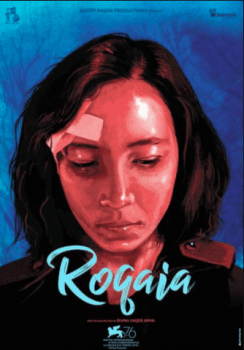
Absolutely. cosaff.org has all the information you need. It has a full schedule which you can filter by themes and topics and film titles and countries. It has a big register button you have to register so go register tonight. It will take you less than 10 seconds. Like I said, that will have all the information. Then obviously we’re all on Twitter, Facebook and Instagram @COSAFF. You’ll find us everywhere.
Also, all of our coalition festivals are also sharing everything that we’re posting. So, I just want to mention all of them just one more time before we wrap up. We have the Tasveer South Asian Film Festival, the Vancouver International South Asian Film Festival, Chicago South Asian Film Festival, DC South Asian Film Festival, Nepal America International Film Festival, Mosaic International South Asian Film Festival.
Then we have the South Asian Film Festival in Montreal. Seven amazing festivals that have come together go to cosaff.org and you will see everything, and you have to register to get all the latest information.
Absolutely. And if you or someone that wants to support by donating, by sponsoring, what is the best way to do that?
Absolutely. So the easiest way is, again, if you go to the registration link, you’ll have an option to donate so you can register and donate at the same time. Which is fantastic. If there’s anyone who wants to donate a bigger amount or something else, definitely reach out to us directly at [email protected] or me [email protected] and we will happily speak to anyone who wants to partner response or donate.
Yay! So, folks, we are sitting around the corner from the start of the film festival, COSAFF Coalition of seven incredible North America wide South Asian film festivals. I was just speaking right now with Pulkit Datta who is organizing kind of the efforts around all of this. This is a free film festival.
All you have to do is register, go right now and register and just tell everyone that you know about this, because you know that those fifteen days starting on October the 3rd need to be a lock down for every single South Asian in North America. You heard it right here at Anokhi Life. Thank you so much for your time, Pulkit. This was incredible.
I wish you guys so much luck with this. I’m very excited to be a part of it, both as a media and partner with Anokhi Life, but also as somebody that’s going to be viewing all of the festivities as they progress. Thank you so, so much for your time.
Thank you so much for having us. And again, I really appreciate Anokhi Life. And you for everything you do for uplifting the South Asian communities. So we’re really, really honored to have you as a partner as well. Thank you.
You can catch the show on www.rukusavenueradio.com the South Asian channel on Dash Radio as well as Spotify, every Monday. This episode is airing Monday October 5th.
Let us know what you think in the comments below or hit us up on Facebook, Instagram and Twitter!
We can’t wait to hear what you think!
You can always send us a DM or email us at [email protected]! And don’t forget to always tag us at #ANOKHIUNCENSORED!






